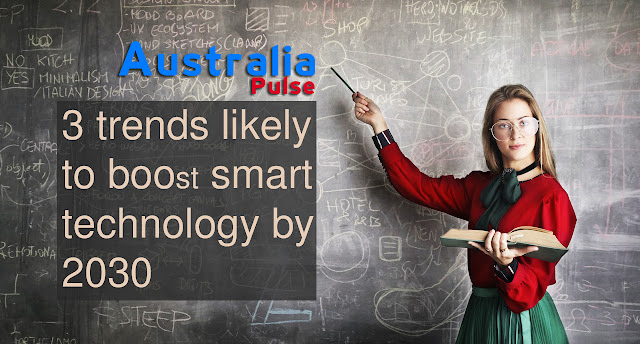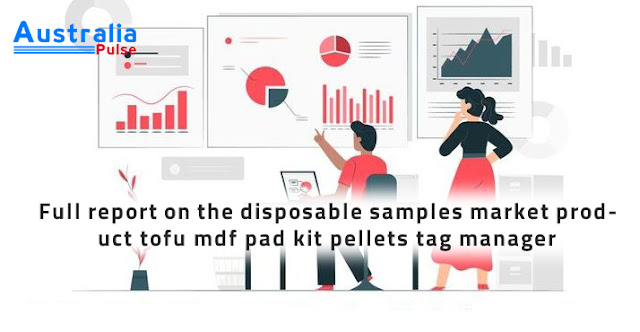3 trends likely to boost smart technology by 2030
Smart technology and upcoming developments
Did you miss a session from the long run of labor Summit? This president has been put in place to guide us forward so as to reach the top of the business by asking the library to stream.

to mention the smallest amount.
and provide chain improvement, every contributed to the decades-worth of digital transformation we’ve packed into the past twenty months.
We can, without doubt, attribute a part of this acceleration to the rather-sudden emergence of use cases.
For readers outside the school and computer code industries,
use cases square measure the aim that technologists dream can intercept their inventions.
we have a tendency to build with use cases in mind, however, it's usually solely later that our work’s true impact hits home with customers.
Silly Putty is one exemplar of this. Listerine was speculated to be a floor cleaner.
Consider Zoom, currently a social unit name complete.
In early 2012, Zoom’s webpage secure “Group HD Video Calls on Facebook.” Fast-forward to a year before the primary COVID-19 coverage,
and Zoom Saturday squarely within the business-to-business (B2B) and business-to-consumer (B2C) internet conferencing answer,
with but a hundred million daily meeting participants. By April 2020, this grew to over three hundred million daily users.
whereas several of those new users were business users engaging from home, several others were seeking that 2012 use case – a more robust digital reference to friends and family.
Looking to the long run of sensible cities,
we must always keep this development in mind.
Whether over-hyped or under-marketed, here square measure 3 “dark horse” technology trends that square measure probably to power the sensible cities of 2030.
Peer-to-peer networks
Often tagged with cowardly sounding names like “the dark internet,” peer-to-peer (often abbreviated as p2p) networks are a part of the technology landscape for over thirty years.
Today’s innovations in p2p, like Protocol Labs’ lib pp, power chat, web pages, apps,
and databases — typically and ideally while not central authority or your normal internet servers and ISPs.
In communities, this capability might upend the top-down intranet-style government portals and modify voters to self-organize in an exceedingly bottom-up manner.
Communities can produce and deliver peer-to-peer services, and therefore the government can contribute as a participant and equal peer.
In 2030, p2p-based distributed apps might rework public transportation,
access to food, healthcare, energy, elder-care, journalism, policing,
and beyond.
Recommendation engines and therefore the filters and algorithms that power them drive our social media feeds,
music and film consumption, and online purchases.
In 2030, they're going to probably power several of our interactions with native and local government resources and services.
In a p2p-powered sensible community wherever we have a tendency to absolutely manage access to our knowledge and its usage,
we’ll prefer into services that United States of American our digital fingerprints to have interaction us with services specific to our desires. Social,
health, financial, and beyond, all government services can be proactive and switch today’s painful DMV expertise into tomorrow’s straightforward text message exchange.
Smart technology through distributed ledgers and blockchains
A minute of your time to assume that your main exposure to blockchain and technology is considered through a distributed ledger (DLT) is through a cryptocurrency lens.
in this case, the match here might not be thus obvious. It's nothing to try and do with finance the least bit – and everything to try and do with trust.
Blockchains and DLT square measure renowned for what's debatably the primary use case,
acting because of the underlying record of transactions in exceedingly suburbanized money models like Bitcoin, Ethereum, and even meme-coins like jurist.
However, if we have a tendency to really take into account the underlying traits of the technology, its potential use cases go so much on the far side of crypto.
Regarding conventional info, all parties should trust the info owner to stay secure, anonymous, and guarantee integrity.
and peer-to-peer networks. Dots in 2030 can lack a central authority – all participants within the content are going to be equal contributors, auditors, and inspectors.
wherever we have a tendency to all absolutely share possession of our communities with the leaders and services on that we have a tendency to the bank.
So, what’s stopping us?
- Like any different Twenty 1st Century project, the triple-crown implementation of “smart cities” balances individuals, processes,
- and technology. we have a tendency to square measure typically smart at that last one.
- Still, we have a tendency to square measure an extended manner from absolute integration the technologies delineate higher than with everybody in our communities.
- we want to contemplate accessibility as necessary as utility And settle for that these sensible town investments could also be even as vital to an equal and simple society as education and access to water and sanitation. to the present purpose,
- we have a tendency to should conjointly take into account the upkeep of this digital infrastructure like we have a tendency to do our roads and bridges.
- As recent history shows in the United States of America, construction is one issue, however, repairs are another.
Brian Gilmore is the director of IoT product management at InfluxDB,
the creators of InfluxDB.
He has centered the last decade of his career on operating with organizations around the world to drive the unification of commercial and enterprise IoT with machine learning, cloud,
and different really transformational technology trends.
DataDecisionMakers
Welcome to the VentureBeat community!
DataDecisionMakers is where specialists, together with the technical individuals doing knowledge work, will share data-related insights and innovation.
If you wish to examine the latest ideas and up-to-date info, best practices, and therefore the way forward for knowledge and knowledge school, be a part of the United States of America at DataDecisionMakers.




